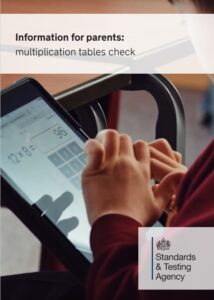We re pleased to provide the following information in relation to the statutory assessment your child will undertake during their time at St Peter’s.
In line with our vision of Love Learn Shine we ensure children are appropriately briefed and prepared for these assessments. We will support children to approach assessments with confidence by where appropriate ensuring they are familiar with the likely content, layout and format of assessments while also ensuring children are not repeatedly sitting mock tests.
We will report the outcome of all statutory assessments to parents including outlining any further support that we feel will help your child.
Children starting school from September 2021 onwards will participate in the reception baseline assessment (RBA)
within the first 6 weeks of starting reception.
The purpose of the assessment is to provide the starting point for a new measure that will help parents understand how well we support our children to progress between reception and year 6 / the end of key stage 2.
While this may sound a little formal our experienced Early Years team implement this is a very child friendly way working individually with each child going at their own pace to complete the assessment tasks.
For further information you may wish to read the information guide below.
Information for parents: Reception baseline assessment
The Phonics Screening Check is a check for children in Year 1 taken during June. The check is completed by the children working one to one with a familiar adult. This is usually their class teacher but also sometimes another teacher or teaching assistant who is well known to the child.
Children learn phonics to help them with word reading and spelling however the Phonics Screening Check only tests their skills at word reading which is called decoding.
During the Phonics Screening Check, children are asked to read (decode) 40 words. Most of these words are real words but some are pseudo-words or ‘alien’ words. These are included to ensure that children are using their decoding skills and not just relying on their memory of words they’ve read before.
The screening is divided into two sections.
Section 1 is the easier part in which children are asked to recognise simple word structures and Grapheme Phoneme Correspondences (GPCs) from the first phases of the phonics curriculum.
Section 2 is the trickier part where children need to recognise GPCs from the later stages of the phonics curriculum. They also encounter graphemes that correspond to more than one phoneme (e.g. the grapheme ‘ea’ represents different phonemes in the words bread and bead.)
There is no time limit for the Phonics Screening Check, but it usually takes less than 10 minutes.
After the check is complete for all children and the ‘pass’ threshold for that academic year confirmed we will report to parents the outcome of the screening for their child including outlining any further support that will be put in place for their child.
Phonics Screening Information For Parents
Learning to Read Through Phonics DfE Parent Guide
These are now optional and at present the school continues to use these to help assess our children at the end of Key Stage One during our summer term assessment week towards the end of the summer term.
In the summer term, children at the end of Key Stage 1 will be assessed using SATs papers. That means that if your child is in Year 2, they will take part in these assessments.
At the end of Year 2, children will take SATs in:
•Reading
•English grammar, punctuation and spelling
•Maths
Key Stage 1 reading
The reading test for Year 2 children will involve two separate papers:
•Paper 1 consists of a selection of texts totalling 400 to 700 words, with questions interspersed
•Paper 2 comprises a reading booklet of a selection of passages totalling 800 to 1100 words. Children will write their answers in a separate booklet
Each paper is worth 50 per cent of the marks and should take around 30 minutes but children will not be strictly timed as the tests are not intended to assess children’s ability to work at speed. The texts in the reading papers will cover a range of fiction, non-fiction and poetry and will get progressively more difficult towards the end of the test. Teachers will have the option to stop the test at any point that they feel is appropriate for a particular child.
There will be a variety of question types:
•Multiple choice
•Ranking/ordering, e.g. ‘Number the events below to show in which order they happened in the story’
•Matching, e.g. ‘Match the character to the job that they do in the story’
•Labelling, e.g. ‘Label the text to show the title’
•Find and copy, e.g. ‘Find and copy one word that shows what the weather was like in the story’
•Short answer, e.g. ‘What does the bear eat?’
•Open-ended answer, e.g. ‘Why did Lucy write the letter to her grandmother? Give two reasons’
Key Stage 1 grammar, spelling and punctuation
Children taking Key Stage 1 SATs will sit two separate papers in grammar, spelling and punctuation:
•Paper 1: a 20-word spelling test taking approximately 15 minutes and worth 10 marks.
•Paper 2: a grammar, punctuation and vocabulary test in two sections of around 10 minutes each (with a break between if necessary) worth 20 marks. This will involve a mixture of selecting the right answers e.g. through multiple choice, and writing short answers.
Key Stage 1 maths
The Key Stage 1 maths test will comprise two papers:
•Paper 1: arithmetic, worth 25 marks and taking around 15 minutes.
•Paper 2: mathematical fluency, problem-solving and reasoning, worth 35 marks and taking 35 minutes with a break if necessary. There will be a variety of question types: multiple choice, matching, true/false, constrained (e.g. completing a chart or table; drawing a shape) and less constrained (e.g. where children have to show or explain their method).
Children will not be able to use any tools such as calculators or number lines.
How will the tests be marked?
Although the tests are set externally, they will be marked by teachers within the school. Instead of the old national curriculum levels, children will be given a standardised score – although this may not be communicated to parents. Teacher assessments will also be used to build up a picture of your child’s learning and achievements. In addition, your child will receive an overall result saying whether they have achieved the required standard in the tests. The Department for Education aims for 85 per cent of children to reach the required standard.
The multiplication tables check (MTC) is statutory for primary schools from the 2021/22 academic year onwards.
The purpose of the MTC is to determine whether pupils can recall their times tables fluently, which is essential for future success in mathematics. It will help schools to identify pupils who have not yet mastered their times tables, so that additional support can be provided.
Schools will have a 3-week check window in June to administer the MTC. Teachers will have the flexibility to administer the check to individual pupils, small groups or a whole class at the same time.
You can watch a short video here that outlines how the check will be taken.

Parents can access information for parents regarding the multiplication check below.
Yr4 Multiplication Tables Check Information for Parents
Key_Stage_2_National_Curriculum_Tests_-_Information_for_Parents
End of Key Stage Two (Year 6)
At the end of Year 6, children will sit tests in: Reading, maths, spelling, punctuation and grammar. These tests will be both set and marked externally and the results will be used to measure the school’s performance (for example, through reporting to Ofsted and published league tables).
Key Stage 2 Reading
The reading test will be a single paper with questions based on three passages of text. Children will have one hour, including reading time, to complete the test (50 marks).
There will be a selection of question types including:
Ranking/ordering, e.g. ‘Number the events below to show the order in which they happen in the story’
Labelling, e.g. ‘Label the text to show the title of the story’
Find and copy, e.g. ‘Find and copy one word that suggests what the weather is like in the story’
Short constructed response, e.g. ‘What does the bear eat?’
Open-ended response, e.g. ‘Look at the sentence that begins “Once upon a time”. How does the writer increase the tension throughout this paragraph? Explain fully, referring to the text in your answer.’
Key Stage 2 grammar, punctuation and spelling test
The grammar, punctuation and spelling test will consist of two parts: a grammar and punctuation paper requiring short answers lasting 45 minutes (50 marks) and an aural spelling test of 20 words lasting around 15 minutes (20 marks).
The grammar and punctuation test will include two sub-types of questions:
Selected response, e.g. ‘Identify the adjectives in the sentence below’
Constructed response, e.g. ‘Correct/complete/rewrite the sentence below,’ or, ‘The sentence below has an apostrophe missing. Explain why it needs an apostrophe.’
Key Stage 2 maths
Children will sit three papers in maths:
Paper 1: arithmetic, 30 minutes (40 marks)
Papers 2 and 3: reasoning, 40 minutes per paper (35 marks each paper)
Paper 1 will consist of fixed response questions where children have to give the correct answer to calculations, including long multiplication and division. Papers 2 and 3 will involve a number of question types, including:
Constrained questions, e.g. giving the answer to a calculation, drawing a shape or completing a table or chart
Less constrained questions where children will have to explain their approach for solving a problem.
Key Stage 2 science
Not all children in Year 6 will take science SATs. However, a number of schools will be required to take part in science sampling: A test administered to a selected sample of children thought to be representative of the population as a whole. (Monday 5 to Friday 16 June is the science sampling test period in which your child might sit the tests.) For those who are selected, there will be three papers:
It sounds very intimidating, but these are ‘questions in a physics/chemistry/biology context’, for example:
Biology: ‘Describe the differences in the life cycle of an amphibian and a mammal’
Chemistry: ‘Group a list of materials according to whether they are solid, liquid or gas’
Physics: ‘Predict whether two magnets will attract or repel each other, based on where the poles are facing’
The previous national curriculum levels have been scrapped and instead children will be given scaled scores. Children will be given a raw score (the actual number of marks they get), alongside their scaled score and whether they have reached the national average. The score needed to reach the national average has yet to be announced but it is anticipated to be equivalent to around 80% which is approximately 30% higher than the score required to achieve a level 4b (expected standards in levels under the previous system).
End of Key Stage Two (Year 6) Test dates:
Week commencing Monday 12th May 2025.
IMPORTANT INFORMATION
The children must take the test on the set day. There is some flexibility as to when within the day the test is taken. We have timetabled our tests for the morning sessions. If your child is ill at any point during the week please contact us as soon as you can.
Please ensure no routine medical appointments are made for during this week.
If you would like any further information please do not hesitate to contact your child’s class teacher.
If you would like to access sample materials please do so via the link here.
